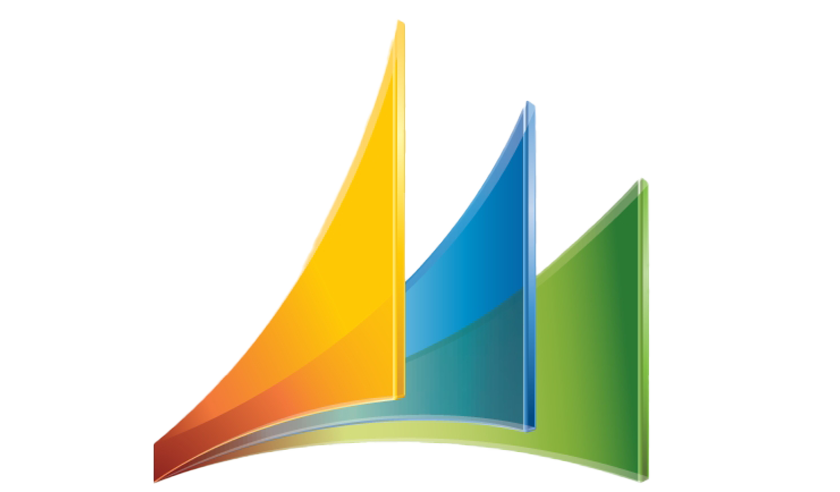Microsoft Navision ERP: What Is It?
If you've ever wondered how big companies stay organized, the answer is here.

Microsoft Navision ERP: What is it? An Explanation of Dynamics NAV
One of Microsoft’s several enterprise resource planning (ERP) products, Navision is also known as Microsoft Dynamics NAV. The ERP community around the world refers to it as Navision or NAV.
Small and medium-sized enterprises can take advantage of this company management solution, which can handle a wide range of tasks, including operations, finance, supply chain, commerce, analytics, and more.
Customer relationship management (CRM) capabilities are also present, however, they are not relevant to this particular use case. Choose Microsoft Dynamics Suite, which includes CRM and ERP solutions, if you wish to take advantage of CRM functions as well.
Financial, sales, operational, purchasing, accounting, and inventory-related manual and repetitive procedures can be automated with Microsoft Navision ERP. By removing the automated chores from the consumers’ daily calendar, this enhances their productivity.
Its adaptability and flexibility make it ideal for businesses with evolving demands since it can be customized and integrated according to specific specifications. Data is stored centrally in Microsoft Dynamics NAV ERP and may be accessed whenever needed. Data administration is made easy with NAV’s control of all activities and procedures, which also makes data reporting and sharing a breeze.
Microsoft Navision (NAV) Capabilities
Microsoft NAV simplifies company management with its numerous features and limitless potential. To address the demands of businesses, it includes modules such as:
Production:
Keep track of all orders and deliveries and provide users with up-to-the-minute data.
F&O:
Manage all accounting and financial processes and operations, including those pertaining to assets and currencies, without a hitch.
Customer:
Manage all customer data, including inquiries, marketing campaigns, contracts, and agreements in the sales and marketing department.
Supply Chain:
Managing the supply chain entails keeping track of all the moving parts, including inventories, potential new products, deliveries, and returns.
Services:
Keep tabs on client inquiries, make tickets, oversee orders, and compile reports.
Project:
Tasks in project management include managing resources, creating budgets, automating invoices, keeping tabs on reports, and allocating resources.
Data Insights: Users are able to manage their budgets, generate reports, and access data in real-time.
Human Resources: Data management, record keeping, attendance tracking, and report preparation are all part of human resources management.
Warehouse Management: Using up-to-date inventory data, streamline the order-taking and fulfillment processes.
NAV has centralized Dynamics 365 for Businesses
Microsoft is currently moving clients away from Dynamics NAV and toward Business Central, the cloud-based successor to the on-premises system.
Compared to Dynamics NAV, Business Central has numerous benefits, such as an updated user interface, a wider range of functions, and the ability to integrate with other products in the Microsoft 365 suite.
By integrating with Microsoft’s other cloud services, including Office 365, Business Central streamlines your company’s access to vital resources. Accounting, sales, customer support, and operational administration are all centralized. Not to mention that data may be accessed from any device, anywhere.
Benefits of Using Dynamics 365 Business Central
Using Dynamics 365 Business Central has several benefits, including the following:
Raising Awareness of the Organization: Users are able to access databases whenever and wherever they choose thanks to the cloud deployment. Users, vendors, suppliers, and employees may all access and share the data, allowing the process to function around the clock for the organization.
Reducing Upfront and Ongoing Expenses: One of the biggest worries for small and medium-sized businesses is the need to invest in assets when implementing or upgrading technology. The installation and maintenance costs of an on-premises deployment are higher than those of a cloud deployment, which is subscription-based and runs on a monthly basis. The company may avoid spending a ton of money on software and hardware thanks to this. The ERP provider made the necessary system updates without informing or charging the business for them.
Efficient Data Entry and Reporting: Users may now store and share data with the appropriate parties whenever needed, thanks to centralized data management. It streamlines data administration by automating processes that previously required manual entry.
Capability to Grow and Modify: There is no need to worry about upgrading server hardware or implementing new technologies as your firm expands. If that’s the case, Dynamics Square or another ERP vendor will handle it automatically, unaffected by your present procedures or activities. Doing so will free you up to concentrate on expanding your business and utilizing cutting-edge technology to provide superior client service.
In today’s competitive business environment, success hinges on superior management and a memorable experience for customers. A powerful tool for managing customers and businesses, Dynamics NAV is now called Microsoft Dynamics 365 Business Central.
If you're using Dynamics NAV, why should you switch to Business Central?
You will be getting all the latest features and advancements with Business Central since it is the latest edition of Dynamics NAV. D365 Business Central is cloud-based, so you may access it from any location. The user interface of Business Central is more current and easy to use compared to Dynamics NAV. A strong accounting module and CRM connectivity are two of the elements that Business Central offers that are absent from Dynamics NAV. Compared to Dynamics NAV, Business Central is more scalable, meaning it can adapt to your business’s growth.
Upgrading to Business Central is a great way to give your company a boost. You should choose Business Central if you are prepared to use a contemporary, cloud-based solution.
Related Blogs
Looking for Microsoft Dynamics CRM Partner?
Our Team of expert Microsoft Dynamics CRM developers are ready to help you out Upgrade and customize in your system.
Get Started










